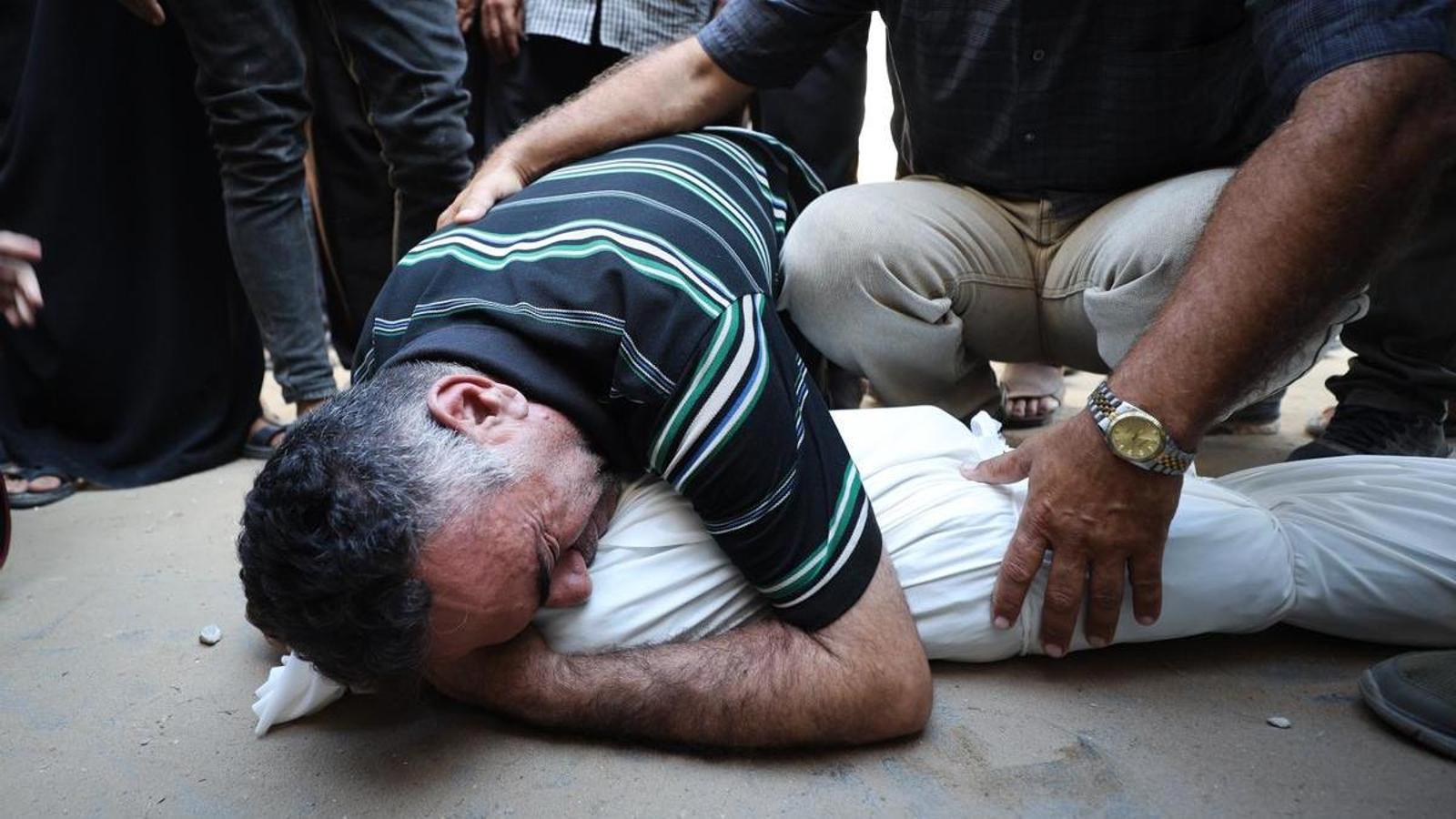Israel continues its relentless siege and destruction of Gaza City.
Nearly 300 people, 115 of whom were children, have already died of starvation, another of Israel's weapons of war.

BarcelonaThe Israeli offensive in the Gaza Strip has intensified even further In the last hours of this Sunday, with aerial and ground bombardments punishing Gaza City and the surrounding areas, while the civilian population faces a humanitarian and food crisis of extreme gravityAccording to information provided by Al Jazeera, the Hamas-controlled Gaza Ministry of Health has stated that the number of victims of famine has now reached 289, of which 115 are children, a figure that reflects the worsening of an already desperate situation. Israel, for its part, continues to deny both the figures and the lack of food, calling it "pro-Palestinian propaganda" and saying that Hamas is withholding the aid.
Amid this critical situation, the Israeli army has updated its plans to take over the largest urban area in the territory, in Gaza City, increasing the pressure on the one million Palestinians living there. Local witnesses reported by the BBC have described continuous explosions in the northern and eastern parts of the city, and also reported that Israeli troops once again blew up buildings in the Jabalia refugee camp, the largest in the Strip, in the north of the territory. In the last 24 hours, Israeli attacks have caused at least 64 deaths and nearly 300 injuries across the Strip, also according to the Hamas Health Ministry. In total, the death toll now exceeds 62,000 and the number of injuries exceeds 150,000.
The UN Food and Agriculture Organization (IPC) officially declared the existence of famine in Gaza City on Friday, a step taken only in extreme situations. The agency, which is supported by the United Nations, has warned that tens of thousands of people are trapped without access to basic food, with children being the most vulnerable population.
However, Israeli restrictions on the entry of food persist and worsen what is already considered the worst food emergency in the Middle East. The desperation to obtain food has led to repeated tragedies: at least six Palestinians died on Saturday from fire by Israeli forces in the so-called hunger queues, according to hospital sources. These incidents are in addition to the attacks on Sunday that left at least eleven people dead.
The deep humanitarian crisis extends to educational infrastructure. A recent report by the UN Relief and Works Agency for Palestinian Refugees (UNRWA), published this Sunday by the progressive Israeli daily Haaretz, reveals that nearly 97 percent of schools in the Gaza Strip have suffered some form of damage. Analysis of satellite imagery up to the beginning of July alone shows that 518 of the 564 existing school buildings will require almost complete reconstruction or rehabilitation to become functional again, with 432 centers (76%) having been bombed since the start of the war. UNRWA warns that all this destruction puts access to education at risk for hundreds of thousands of Palestinian children and young people.
New attack in Yemen
Once again, the escalation of the conflict has spread beyond the Gaza Strip with new airstrikes. The Israeli military also confirmed this Sunday that it had bombed Sana'a, the capital of Yemen, with the aim of hitting the Houthi rebels' "military infrastructure," including the presidential palace and several military bases. The attacks, which coincided with torrential rains that affected part of the city, are part of a broader escalation that Israel justifies as part of its right to self-defense, arguing that the bombings are a response to recent missile and drone launches by the Houthis. The Houthi rebels, allied with Iran, have intensified their attacks against Israel and against commercial ships in the Red Sea since the start of the war in Gaza. Witnesses reported by Reuters indicate that the attacks on Sana'a have also hit an oil station and a power plant.
Meanwhile, in the occupied West Bank, the Israeli army has continued its operations. In the past three days, fourteen Palestinians have been arrested in a series of raids in the village of Al Mugayyir, in the Ramallah area, according to the Palestinian Prisoners' Club. Since October 2023, more than 18,000 people in the West Bank alone have suffered Israeli repression. The official Palestinian news agency Wafa also reported an incursion into Bethlehem and its suburbs, where special forces arrested a former political prisoner after assaulting him. Troops fired tear gas and stun grenades, with no injuries reported in this operation.
